Here's everything we know about Nintendo's new $300 console coming next month, the Switch
This is everything that comes in the $299 package.

There are two different bundles that cost the same $299: one has a blue and a red Joy-Con, and the other has two standard gray ones.
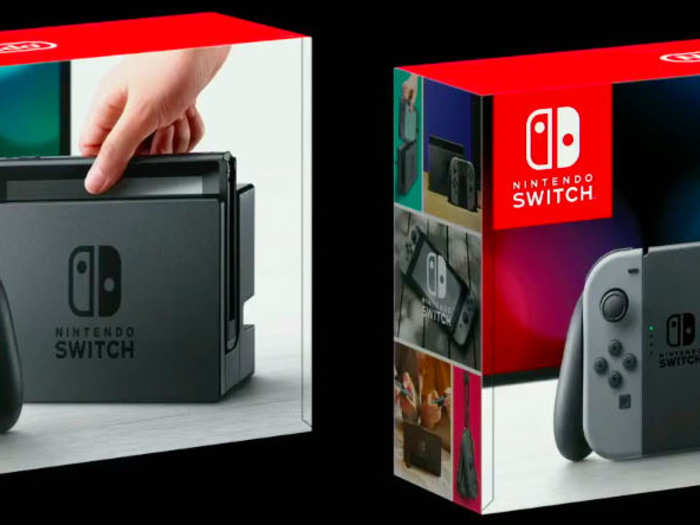
Here's a good look at the Nintendo Switch Dock and the "Joy-Con Grip" gamepad:
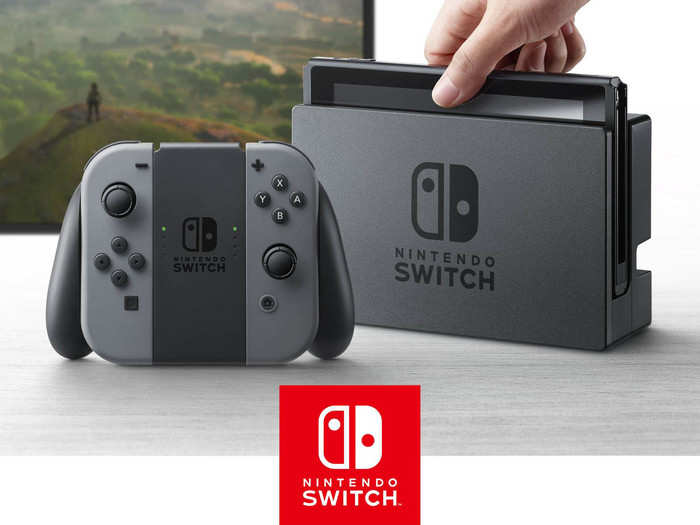
What you see above is exactly what'll come in the box when Nintendo Switch arrives on March, 3: the Nintendo Switch Dock, the tablet-like console, and a home gamepad with the detachable Joy-Con in-tow. Notably, the controller is actually called the "Joy-Con Grip" — since you can detach each side of the Joy-Con bits and attach them to the Switch tablet, the Grip acts as a means of turning the Joy-Con into a more traditional gamepad.
Of note: Everything in the package is being sold separately. Want another Dock? You can buy one. Need just a left Joy-Con? Can do. Nintendo breaks it all down on its site.
Here's what it looks like to place the Nintendo Switch tablet into the Dock:
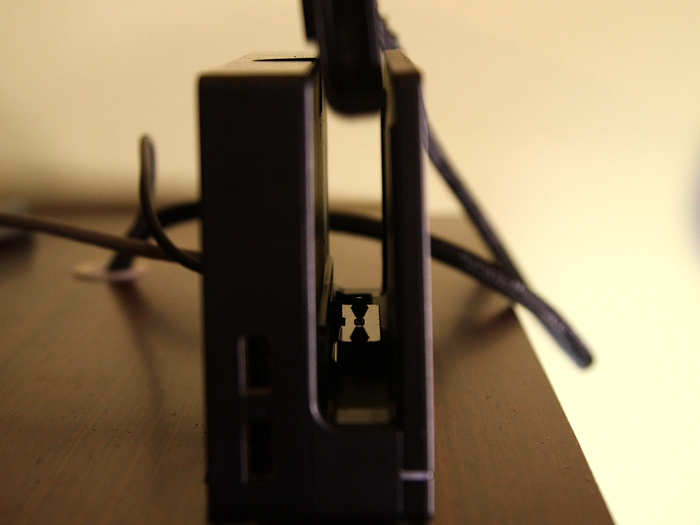
The connection between the Switch and the Dock is a proprietary connector. In my experience, sliding the Switch tablet into the Dock was remarkably simple and easy. If you don't connect it perfectly on the first try, you can literally just slide the tablet around left and right until it connects. It feels like a natural fit, and there's a satisfying click when it's locked in. There is no learning curve.
That said, the Switch itself has a USB-C port on the bottom edge for charging. You can plug directly into an outlet from the tablet itself and play as long as you like (on a long flight, for instance). Notably, connecting the Switch to the Dock doesn't feel finicky (like connecting a smartphone to a speaker); it feels similar to docking the Wii U gamepad, actually.
This is the Joy-Con Grip gamepad in action. It's a bit unwieldy, but certainly workable.
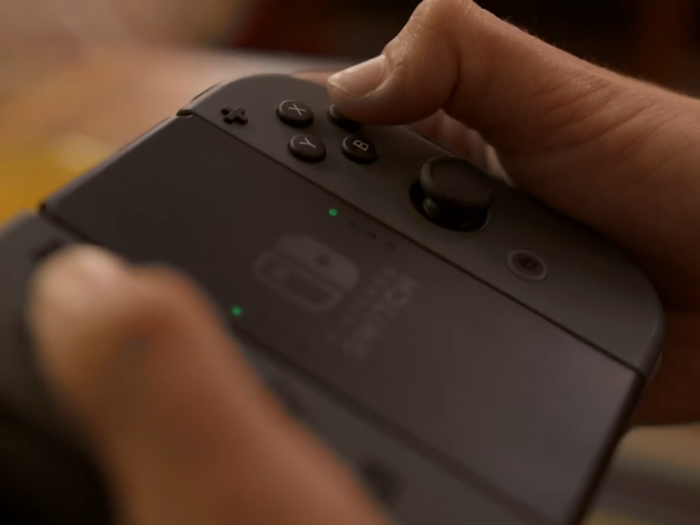
The Joy-Con Grip gamepad has two offset analog sticks and four buttons on each side. There are also shoulder buttons and triggers on each side — the standard gamepad setup nowadays, more or less.
The Grip is a shell that holds the two Joy-Con controllers:
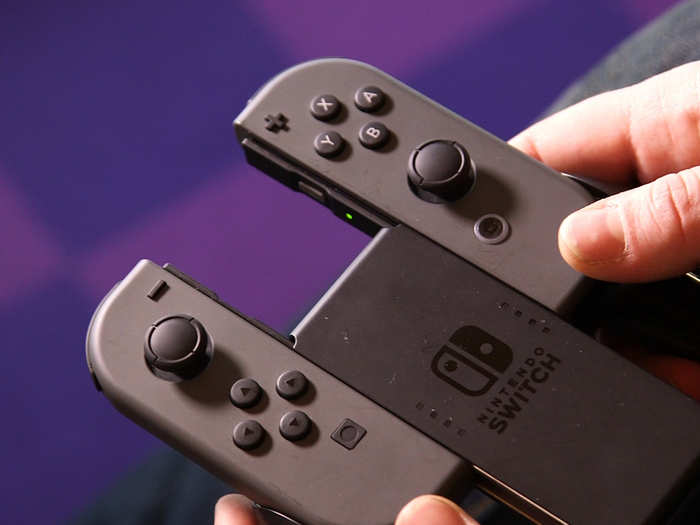
They slide in on each side of the Grip — there are rails on each side of the Grip which enable the Joy-Con to be easily attached. It's not a perfect gamepad solution, but it's the easiest one for the Switch that doesn't require buying a separate gamepad (more on that in a moment).
Here's a good look at the portable version of Nintendo Switch:
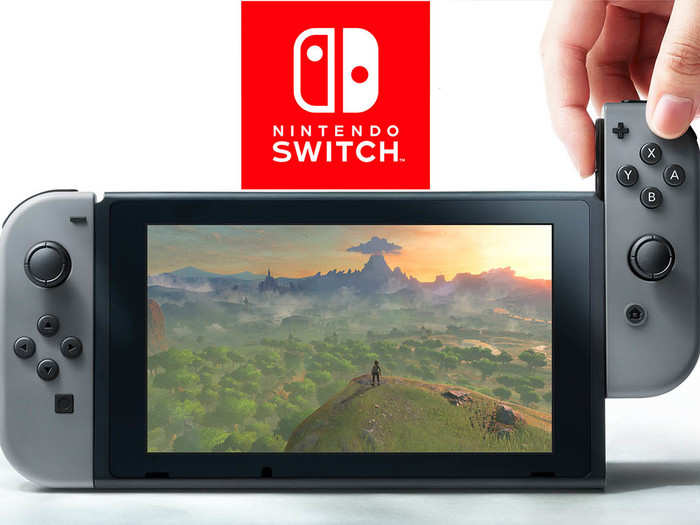
As you see above, the Joy-Con slide onto the sides of the screen, turning it into a portable handheld game console (similarly to the Grip). Each controller has a thumbstick and four main buttons. They can be used with the screen, detached from the screen, or used at home with the Nintendo Switch Dock.
Nintendo says the Switch lasts for about three hours while playing a game in portable mode.
And here's a good look at the Joy-Con:
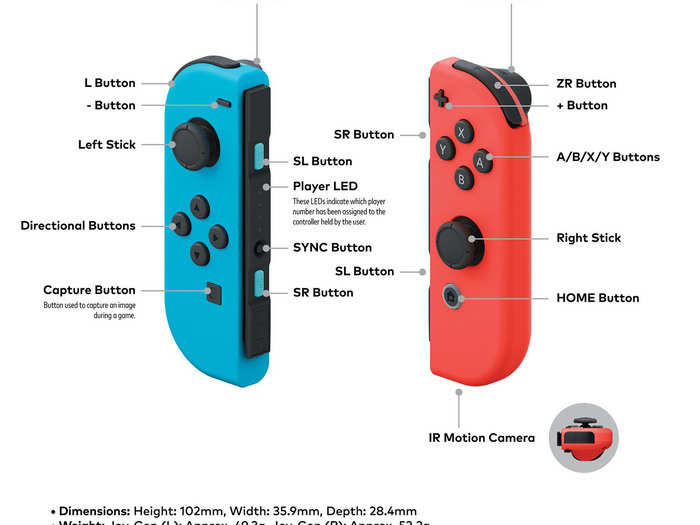
As you can see above, Nintendo is offering different colors of Joy-Con. To start, they'll have the neon blue and red ones seen above, in addition to the standard set of gray Joy-Con.
Even more interesting: each Joy-Con has its own "full" set of buttons!
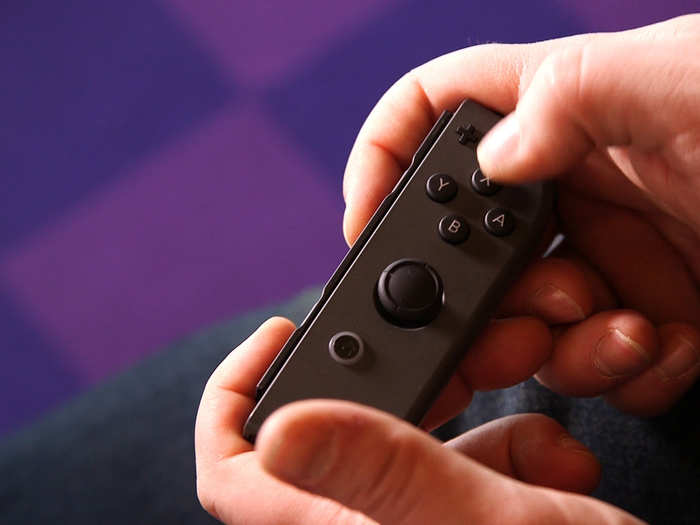
As you can see in the image above, each Joy-Con can be held sideways and operated as its own gamepad. The thumbstick in the middle becomes the way you move, and the four buttons on the right side are for interaction. There are even two shoulder buttons on each.
Have an even closer look:
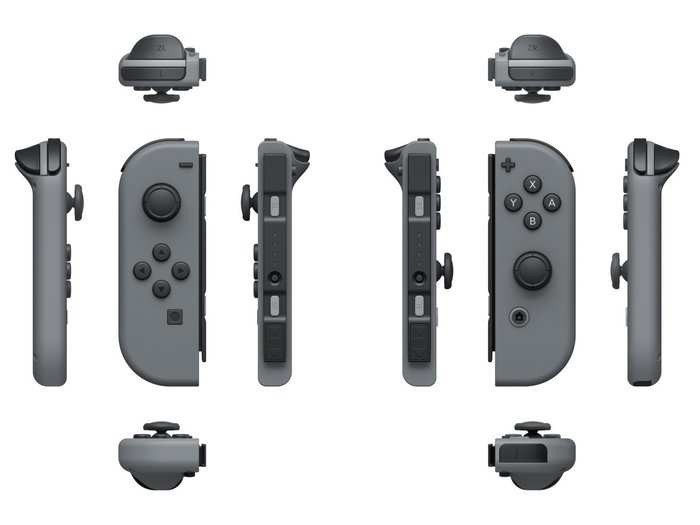
You'll want to be careful not to lose these, as they cost $80 to replace. The same thing goes for those of you who want matching blue or red Joy-Con — they come in a package, but the package costs $80. If you'd prefer to just buy one to complete your set, they're sold individually for $50 each (for a left or right one by itself, to be clear).
A record button is built into the gamepad, just like the PlayStation 4 "Share" button.
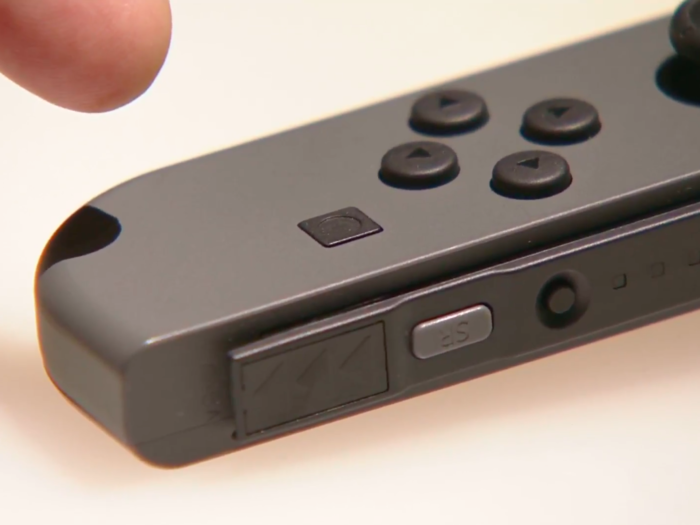
The Nintendo Switch can capture screenshots of games. The system even has a button dedicated to capturing screenshots (seen above). The button is said to also enable sharing of screenshots over social media — directly from the console.
The Switch will also record video of gameplay (using this button), though that feature won't work at launch in March. It's unclear whether the Switch will be able to stream games live, as the Xbox One and the PlayStation 4 can.
The Joy-Con controllers are also motion controllers. They have a thing called HD Rumble built in, which is a hilarious way of saying "they vibrate."
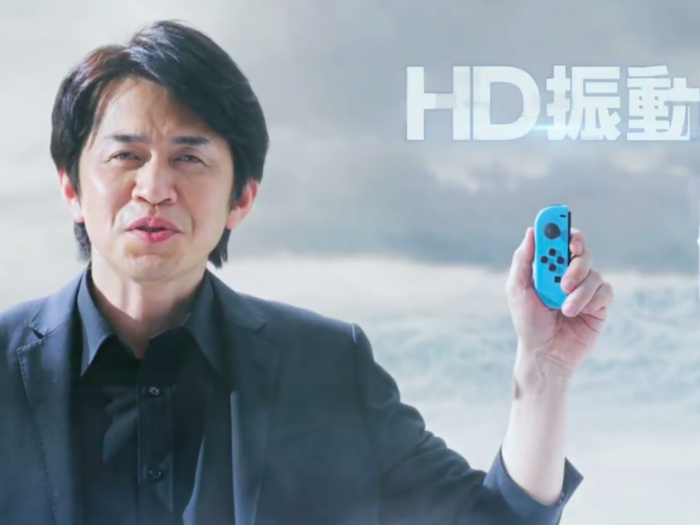
The Joy-Con controllers are more capable than they look! They rumble. They act as motion controllers. They can be used as individual gamepads or connected to a Switch tablet and used as one.
Surprisingly, a variety of motion games are heading to the Switch (in what feels like a bizarre throwback to Nintendo's gimmick with the Wii). Those motion games employ the new "HD Rumble" feature.
But perhaps you'd prefer something more traditional? Nintendo also has a standard gamepad — this is the Nintendo Switch Pro Controller:
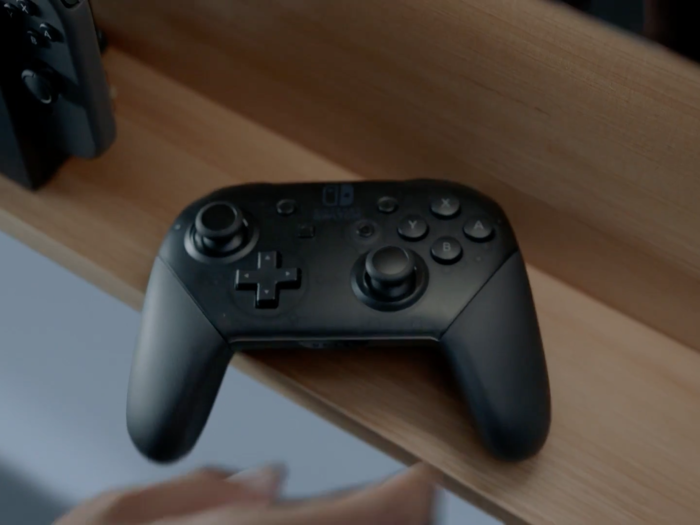
Nintendo's been making the Pro line of gamepads since the original Wii — a way for people to play Nintendo games with a relatively standard gamepad. The Nintendo Switch is no exception: this generation's iteration of the Pro controller looks an awful lot like an Xbox One gamepad. The thumbsticks are concave and offset, and four face buttons are on the right side.
Don't expect this guy to come with the Nintendo Switch you buy in March — it's sold separately. Worse, it costs a whopping $70.
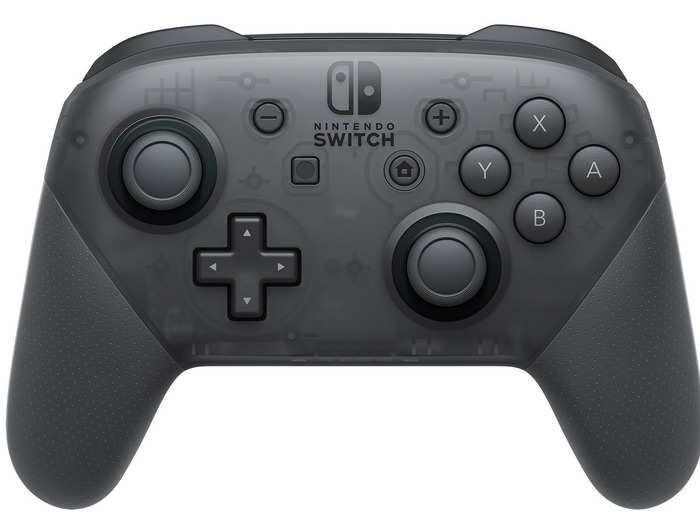
The Nintendo Switch Pro Controller is adorably retro in its translucent case. It replicates the functions of the Joy-Con controllers in many ways, albeit in a far more comfortable format.
There's an NFC reader built-in, so that it can be used with Nintendo's popular amiibo toys. It's got motion sensors, so it can be tilted for gameplay (in, say, "Splatoon 2"). It's even got the new "HD Rumble" feature (more on that below).
Nintendo's gimmick with the Switch is flexibility. Want to play in the car? Go ahead. At home on a TV? Sure thing. As a group of friends? You got it.
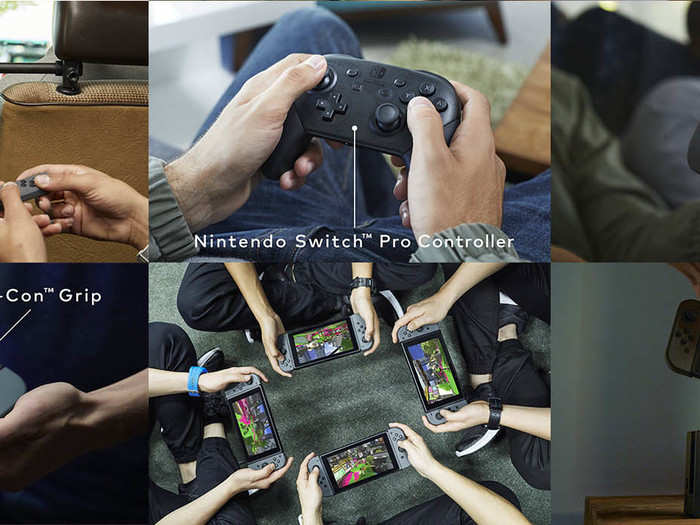
Top, far left: One example Nintendo gives of how the Switch can be used is in the car. In this instance, someone has purchased a Switch mount; then, the Joy-Cons are detached and used as two individual gamepads. If they look tiny, that's because they're hilariously tiny. While it looks like a lot of fun to play a new "Mario Kart" game in a car, we're betting most folks will either play alone or wait until they get home (where there are normal-size gamepads).
Top, middle: Here's a closer look at the Nintendo Switch Pro Controller. It's a pretty standard gamepad. It's unclear whether you can use it without the Nintendo Switch Dock — could one of the "Mario Kart" contestants above be using one instead of the tiny gamepads in the example? Perhaps, but who wants to carry a gamepad everywhere?
Top, far right: Nintendo smartly built a kickstand into the read of the Switch tablet. The company envisions this being used for multiplayer gaming and in-flight gameplay — we envision it as an easy way to watch a movie on the Switch. Nintendo hasn't confirmed Switch as a multimedia device, but we'd be shocked if it weren't capable of as much.
Bottom, far left: As seen here, the Joy-Con Grip comes together via slidable attachments. Each side of the Joy-Con gets attached to the Grip by sliding it on. We're eager to see how this works in practice — the last thing anyone wants is a bunch of hardware rattling around in a bag.
Bottom: middle: Though Nintendo Switch has an online infrastructure for multiplayer gaming, you can play with friends locally, wirelessly. This kind of local multiplayer is a standard on Nintendo's handheld consoles, so it's a no-brainer to bring it to the Switch. Nintendo says up to eight people can play together as such.
Bottom, far right: When you're done living life out loud, playing games outside, simply plop the Switch tablet into the Switch Dock and it becomes a home console instantly. You can even leave the Joy-Con attached to the tablet and use the Pro controller.
So, what about games? Here's a close-up look at the type of media used for games: Think of it like a thicker SD card.
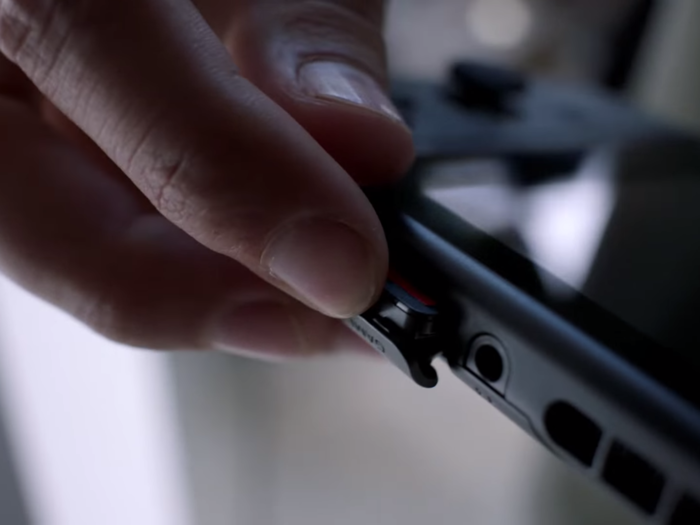
Speaking of games, there are some fantastic-looking ones headed to the Switch. Like "Super Mario Odyssey," for instance:
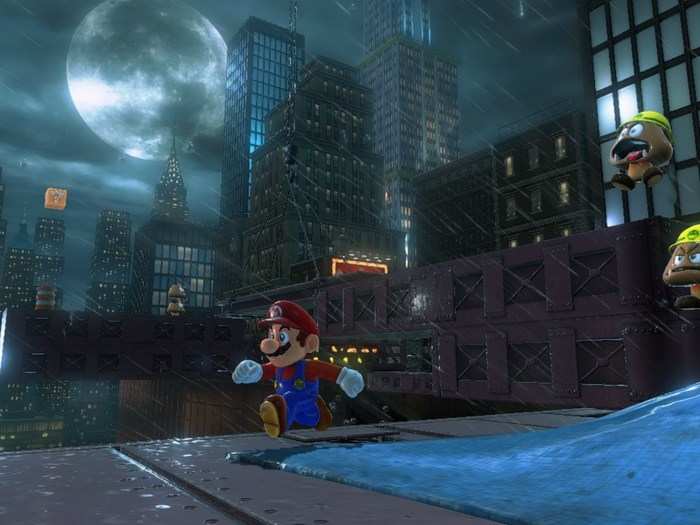
Nintendo's got a stable of games cooking for the Switch: A new 3D "Super Mario" game ("Super Mario Odyssey"), a new "Mario Kart" game ("Mario Kart 8 Deluxe"), an unnamed basketball game that looks suspiciously like the "NBA 2K" series ("NBA 2K18"), and Bethesda Game Studios' 2011 masterpiece "The Elder Scrolls V: Skyrim" (a remastered version of "Skyrim" launched in 2016 on the PlayStation 4 and the Xbox One — this is that version).
And that's not all: "Splatoon 2" is planned for launch this summer, while "1, 2, Switch" and a handful of others are arriving at launch on March 3. Unfortunately, "Super Mario Odyssey" is expected to arrive in "holiday 2017."
EA also confirmed it's bringing the "FIFA" soccer series to Switch, and a handful of Japanese role-playing games are in the works.
Most notably of all, "The Legend of Zelda: Breath of the Wild" is a launch title — arriving alongside the console on March 3.
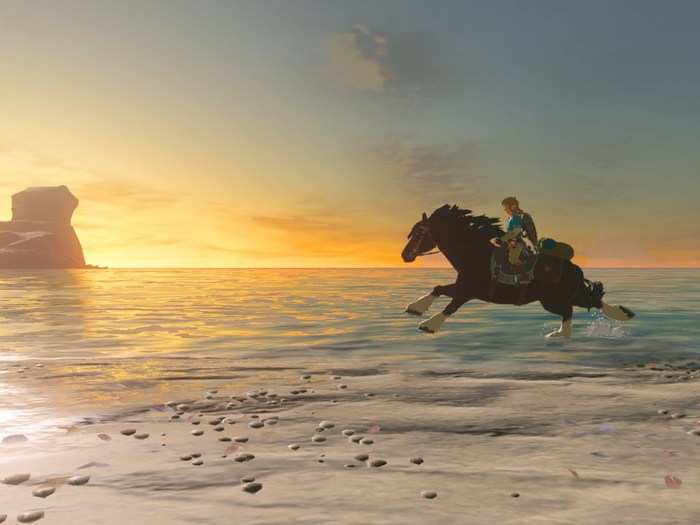
Nintendo is introducing a new online service with the Switch — it's free at first and becomes a paid service this fall.
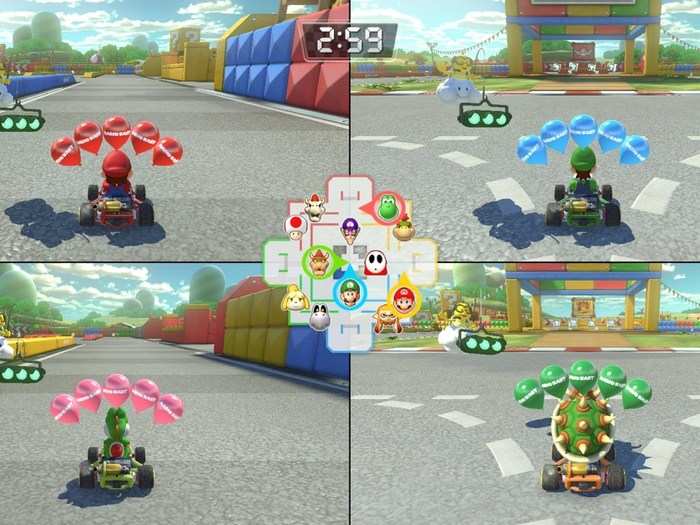
Alongside the Switch, Nintendo is introducing a more fully featured online service. The service will be free for a period after launch in March, but will become a paid service this fall.
Kimishima also said that more details are coming, but he didn't say when. A website from Nintendo details a service that sounds similar to the paid services offered on Sony and Microsoft platforms, like PlayStation Network and Xbox Live. Those services offer stuff like cloud saves, free monthly games, and other perks for paying.
In the case of the Nintendo Switch Online Service, you'll get access to multiplayer and co-op online gaming, voice chat, and a classic NES or SNES game every month.
There are some massive caveats with Nintendo's new online service. For instance, those NES/SNES games won't remain free forever. You get them for one month — that's it.
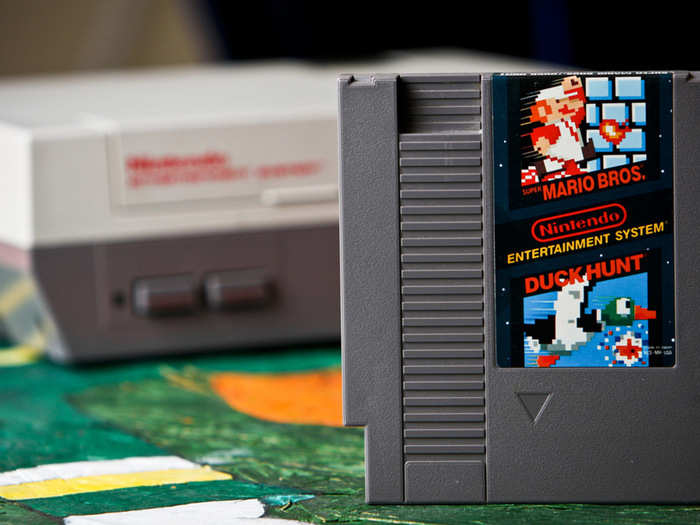
As Nintendo America president Reggie Fils-Aime told Wired: "Essentially you’ve got access to that game for a period of time, and then after the month there’s a new selection. You’ll have the opportunity to buy it, but [after] that month we’ve moved on to another game."
And yeah, that's a pretty crappy serivce. In the case of the free games offered on Xbox One and PlayStation 4, those remain yours as long as you're a paying member of their respective online services (Xbox Live and PlayStation Plus). In the case of the Switch, Nintendo revokes free NES/SNES games with its paid service after a single month.
When you add to that the fact that Nintendo's free games are just old games, it becomes even less logical.
This is Nintendo's first portable console that can be used anywhere in the world, without any region-locking.
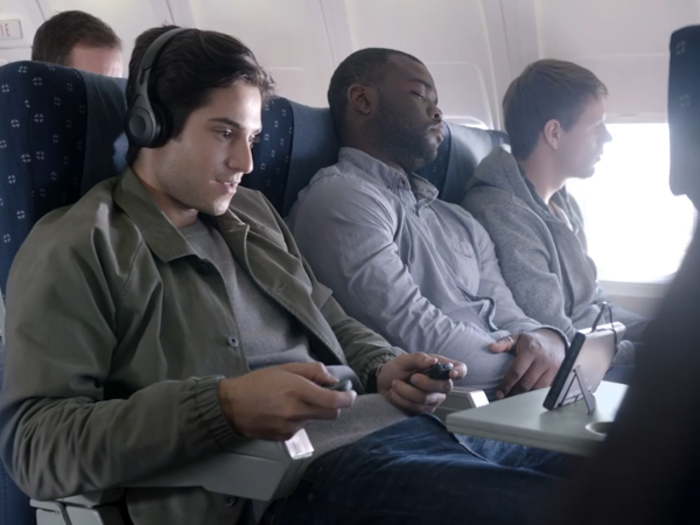
Previous Nintendo consoles sold in the US couldn't play games that were produced in Japan, and vice versa. The same situation applies to Europe. In the case of the Switch, that's changing. Kimishima, Nintendo's president, announced as much during the Tokyo event on Thursday. It's a major departure for a company that has been slow to change in terms of international trends.
We saved the best for last: Here are all the technical specs you're thirsting for!
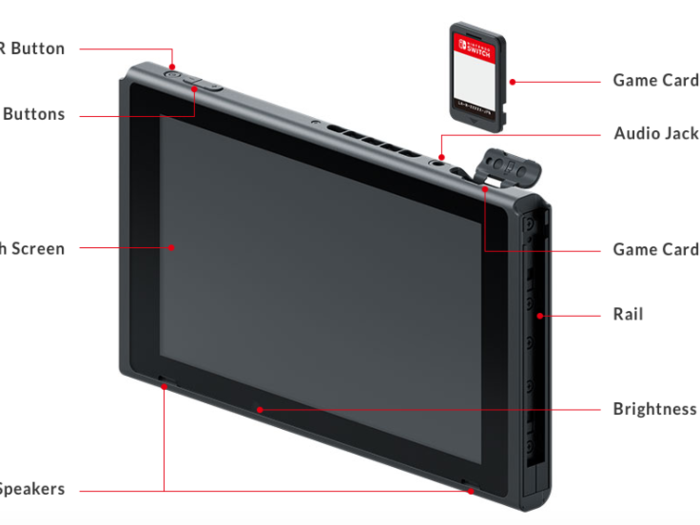
Nintendo hasn't detailed the internal specs of the console just yet, and it may never. What we do know is the internal storage — 32 GB, but it can be expanded easily using micro SD cards — and the screen size — a 6.2-inch, 1280 x 720 screen. The screen is also of the touch variety, which we're guessing will be employed more as a means of navigating menus on the go than as a gameplay input device. During a preview session that Nintendo held in New York City, the touchpad wasn't being used for anything in terms of gameplay.
In terms of the internal horsepower, that's unknown. Nintendo's using a "custom" chip from NVIDIA, which is described as a, "high-efficiency scalable processor." In terms of what's powering graphics, that's an "NVIDIA GPU based on the same architecture as the world’s top-performing GeForce gaming graphics cards."
Rather than using discs, the Switch used game cards — one such example can be seen above.
Most important of all, perhaps, the battery is said to last "roughly three hours" while playing "The Legend of Zelda: Breath of the Wild" on the handheld version of Switch.
Here's the full debut video from Nintendo for your viewing pleasure:

Popular Right Now
Advertisement